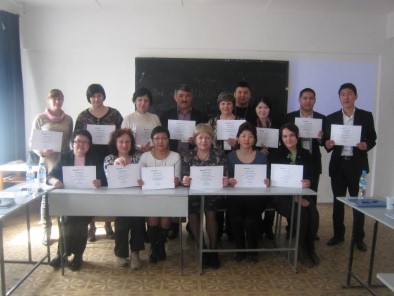The workshop participants also included young PhD students and provided an opportunity to explore how lecturers might enhance water-related education for a new generation of professionals. “In spite of a long history teaching water engineering, we are still at an experimental stage” said Dr. Roza Bekboeva regarding education comprising integrated approaches to water and resources. She is an Associate Professor of the Hydraulic Engineering Department, which developed the first syllabi on IWRM in Kyrgyzstan a few years ago.
Dr. Danka Thalmeinerova, GWP’s Senior Knowledge Management Officer, brought several case studies to illustrate an application of IWRM principles and tools in concrete situations. “This is extremely important,” said Dr. Thalmeinerova, “because IWRM is not a scientific theory. It requires policy-makers to make judgments about which reforms and measures, management tools, and institutional arrangements are most appropriate in a particular cultural, social, political, economic and environmental context.”
She added, “Lessons learned and analytical discussions on case studies means there can be a critical examination of real events and can help students to learn how to implement more sustainable water strategies and policies. And young participants welcomed the all-to-rare opportunity to be trained together with their lecturers.”

